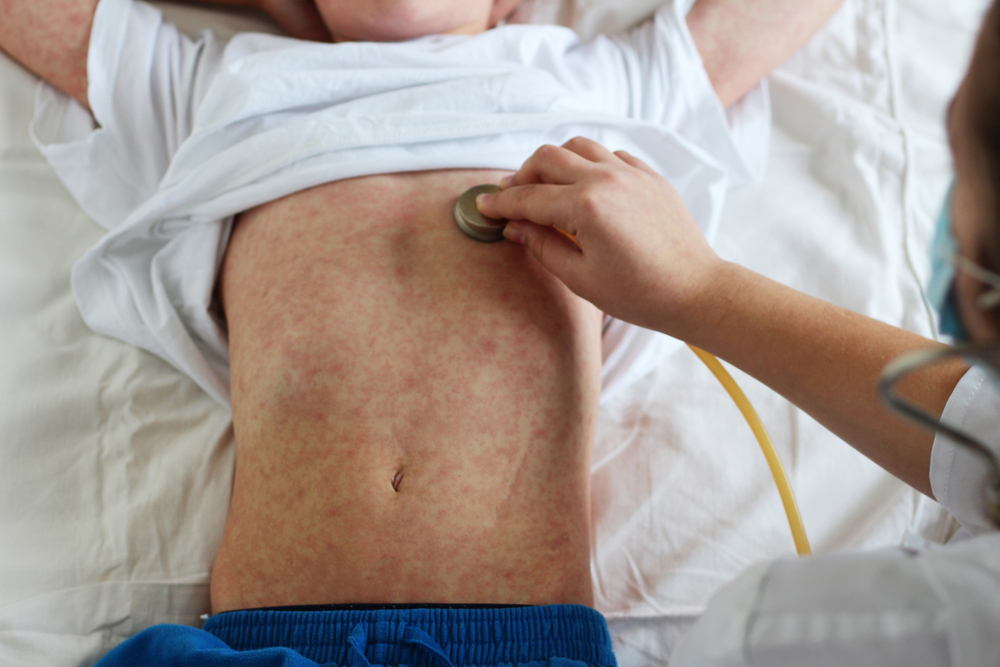With 24 confirmed measles cases in the last month in Queensland, West Moreton Health is urging Ipswich residents to get vaccinated.
That is the message West Moreton Public Health Physician Dr Catherine Quagliotto is urging community members to hear.
“This year we have seen a spike in measles cases across Australia,” Dr Quagliotto said.
“In Queensland alone there have been 24 confirmed measles cases in the last month.
“The best way people can protect themselves is to get vaccinated.
“It’s a quick process but it can be a life saver.
“Measles is a serious illness – it can land you in hospital and there’s the possibility of fatal complications such as pneumonia and brain inflammation.”
Measles spreads very easily.
The virus can stay in the air for up to 30 minutes after an infected person leaves a room so in many cases a person may not even know they have been exposed to the illness.
A significant portion of the recent measles cases in Queensland have been linked to people who have recently travelled overseas but locally acquired cases are starting to occur.
Dr Quagliotto said anyone thinking of travelling overseas — particularly to countries with large ongoing measles outbreaks such as the Philippines, Samoa, New Zealand, the United Kingdom and other parts of Europe, and North and South America — should make sure their vaccinations are up to date
“When travelling to another country there may be a number of vaccine-preventable diseases that you are at risk of contracting,” Dr Quagliotto said.
“Adding vaccinations to your travel preparations can help prevent you from getting sick in a foreign country.
“Also, because we know measles can also spread locally, everyone should be checking whether they are protected against measles and should check with their GP.”
Queensland Health recommends anyone who has not had two documented doses of measles, mumps, rubella (MMR) vaccine or had proven measles, to visit their doctor to get vaccinated.
For anyone born during or since 1966 the vaccine is free.
For more information on measles visit the Queensland Health website or contact 13 HEALTH (13 43 25 84) any time, any day.
Signs and Symptoms of measles include:
- Fever
- Tiredness
- Cough / sore throat
- Runny nose
- Red inflamed eyes
- Tiny white spots with bluish-white centres on a red background found inside the mouth on the inner lining of the cheek
- A skin rash made up of large, flat blotches that often flow into one another.
The infection occurs in sequential stages over a period of two to three weeks:
- Infection and incubation: For the first 10 to 14 days after you’re infected, the measles virus incubates. You have no signs or symptoms of measles during this time.
- Nonspecific signs and symptoms: Measles typically begins with a mild to moderate fever, often accompanied by a persistent cough, runny nose, inflamed eyes (conjunctivitis) and sore throat. This relatively mild illness may last two or three days.
- Acute illness and rash: The rash consists of small red spots, some of which are slightly raised. Spots and bumps in tight clusters give the skin a splotchy red appearance. The face breaks out first. Over the next few days, the rash spreads down the arms and trunk, then over the thighs, lower legs and feet. At the same time, the fever rises sharply, often as high as 40 – 41 C. The measles rash gradually recedes, fading first from the face and last from the thighs and feet.
- Communicable period: A person with measles can spread the virus to others for about eight days, starting four days before the rash appears and ending when the rash has been present for four days.


